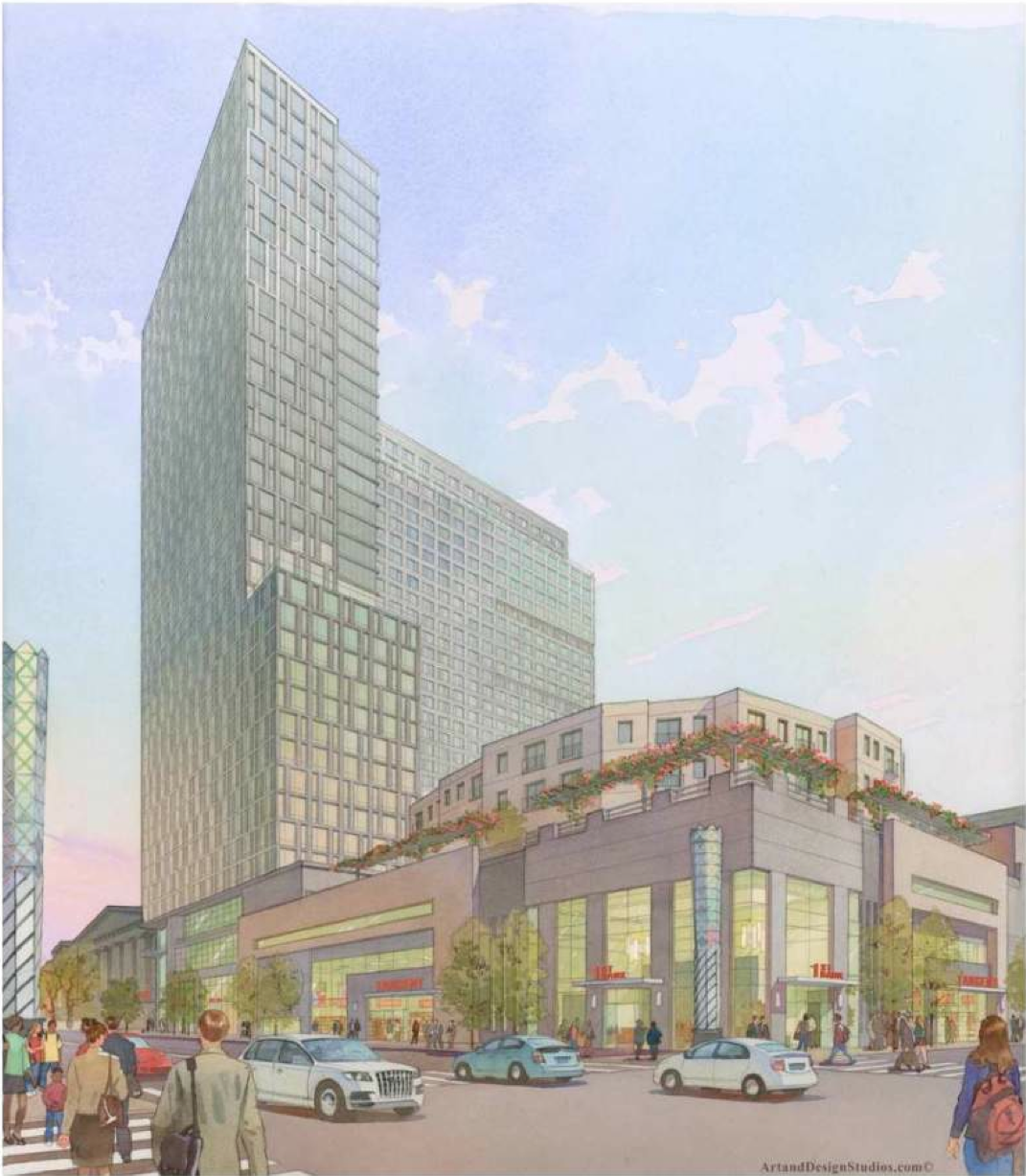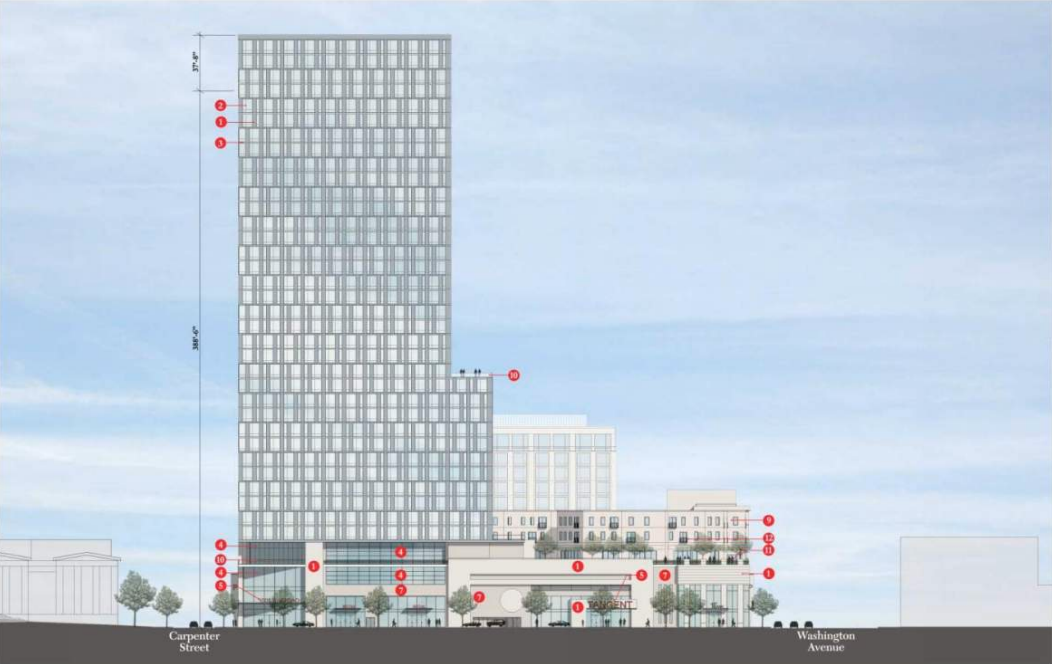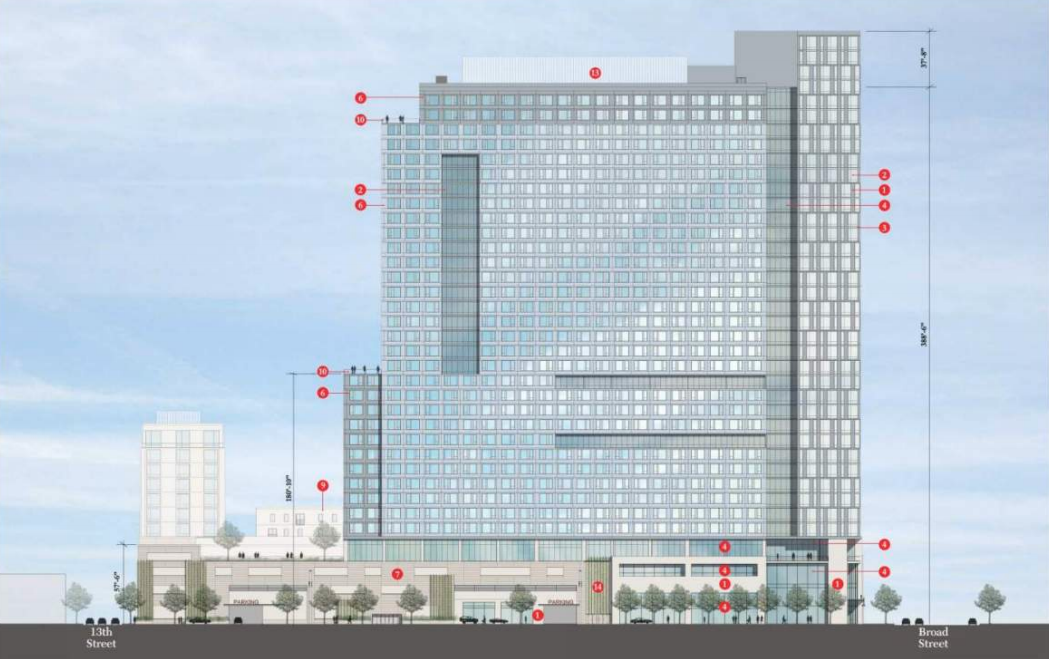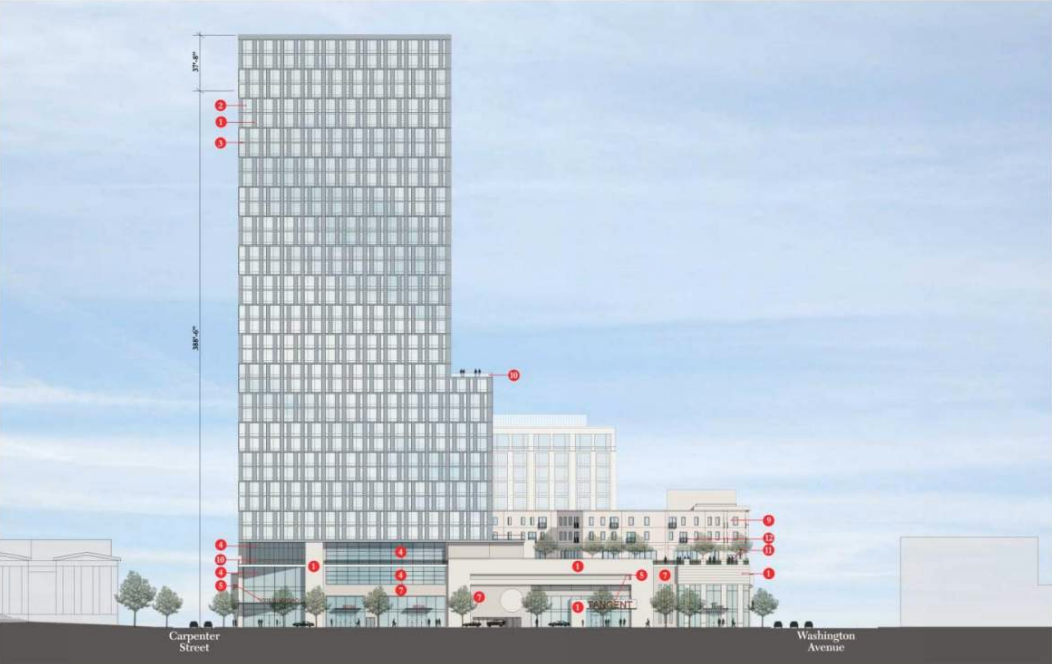Design committee wants another look at Broad & Washington proposal

“You’ll be transformed,” Bart Blatstein told the Civic Design Review Committee on Tuesday, describing how Philadelphians would experience his proposed 800-unit mixed-use apartment complex with a rooftop retail village at Broad and Washington in South Philly. “It’s very important to feel transformed.”
Blatstein is coming fresh off a meeting with Hawthorne Empowerment Coalition last week at which his proposal was roundly criticized for being too tall and too unfriendly to pedestrians, and for providing both too much and too little parking. Since then, he’s adjusted the design just a bit. Now there’s no loading zone on 13th Street. Later this month, he’ll be asking the zoning board for special exceptions to place retail spaces above the ground floor and to build the parking garage above ground. The zoning board meeting on March 23rd will be his 41st meeting about the project over the last two-and-a-half years, he says.
After reviewing his designs, the Civic Design Review (CDR) Committee asked for one more meeting, the only regulatory power the advisory board has. Since the Committee wants to see the project again, the Zoning Board of Adjustment could opt to hold its decision pending the committee’s final review. In any event, the design may be tweaked some more.
Blatstein responded to nearly all of the Committee members’ concerns with some version of the phrase, “I get it.”
He gets the various perspectives on off-street parking: that providing too much will induce demand for more cars, and that too little will overwhelm the surrounding streets. He has proposed 600 parking spaces, while the zoning code only requires around 270.
“I believe there should be sufficient parking,” is Blatstein’s perspective. “An overabundance of parking, in fact.”
The “belt and suspenders” approach.
Anita Toby Lager, a landscape architect who serves on the CDR Committee, asked how pedestrians would know that there was a Provence-inspired retail mecca four floors above their heads as they walked by the project.
“You’ll know it’s there,” Blatstein said, addressing Toby Lager, “because, first of all, you know it’s there.”
Those who don’t already know it’s there will find out on social media, he said.
Ben Weber, the chair of Hawthorne Empowerment Coalition zoning committee, said he doesn’t believe the project can be truly walkable if it remains a “superblock.” He suggested—as did the Planning Commission staff—that Blatstein consider building portions of Kimball and Watts streets back into the block. That could keep the tower on the westernmost portion of the site, closest to Broad Street, with lower-density development on the eastern portion closer to the residential neighborhood, all while allowing pedestrians to pass through the block without taking a long walk around. Blatstein doesn’t want to do that.
Architect and CDR board member Cecil Baker was the most sanguine about the project.
“How can we take this energy and kind of vision [Blatstein] brings to the city where lesser mortals have not dared to put a dollar behind?” Baker said. “ … Let’s let him do his village. How do you get to it? A stairway is not the way to do it.”
The way it’s currently designed, the rooftop village could only be accessed at the southeast corner of the property. All the committee members seemed to fear that simply providing a stairway, an elevator, and an escalator wouldn’t be enough of a draw to get pedestrians to go visit a village they can’t see from the ground. Blatstein is emphatic that it will be: It’s going to work, he said repeatedly.
Baker said that the pathway to the Provencal village should have amenities along the way to draw people in. Blatstein said he’d consider the idea.
“There are very few people I respect more than Cecil,” Blatstein said. “I adore this man, and I would be happy to explore with you this notion.”
“Because I think we can all have our cake and eat it too,” Baker responded.
“You had me at hello, Cecil,” Blatstein said.
None of the committee members wanted to come out in opposition to the project—not that their opposition could stop it. They all seemed to feel the importance of the site, which has been vacant for decades, and repeatedly said that they want the project to be successful. They just have concerns about the design, the above-ground parking, the placement of the tower, the entrance to the village, and the uses on the ground floor.
Blatstein said he gets it. It’s going to work, he said.
WHYY is your source for fact-based, in-depth journalism and information. As a nonprofit organization, we rely on financial support from readers like you. Please give today.








